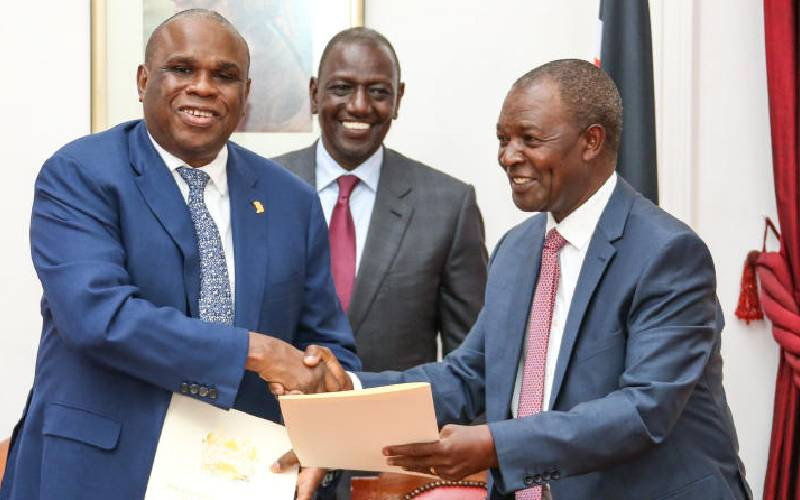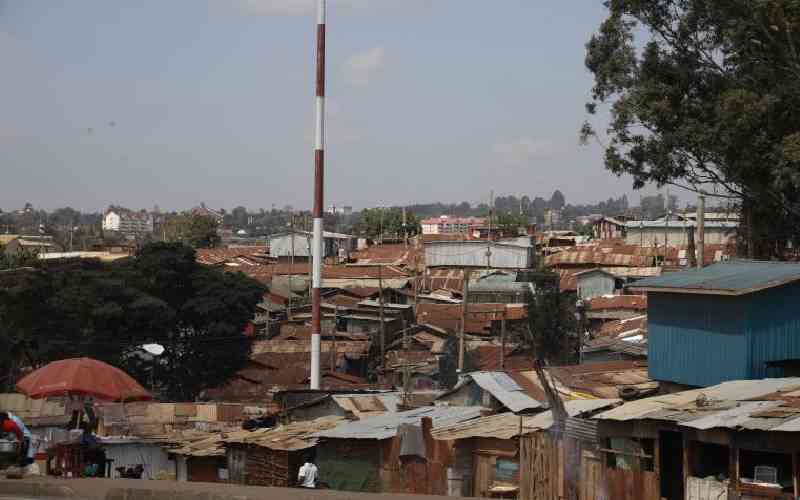For the past couple of budget readings, we have termed the government budget as ‘Kenya’s most ambitious’ or ‘the largest in history’ or some version of the same.
Unfortunately, unlike the private sector, a significant or increasing national budget does not portend the revenue potential of the country, and do not let anyone lie to you that it does.
It however, reflects the potential to unduly and overly tax the electorate to fund the country’s ambitious expenditure, which usually in our case ends up in the political elite’s purse strings whether directly or otherwise.
For a developing country whose leadership has expressed verbal commitment to steering it towards sustainable growth, this pledge is not reflected in Kenya’s budget.
As opposed to using our realistic projected revenues to guide the expenditure and related austerity measures, we have been lured into a transient sense of stability framed by the words ‘sustainable debt’ Treasury keeps throwing in our faces.
Unfortunately, we are not at the point where we can trust this because sadly, it has turned out that just like all other institutions, this one has been captured by the state.
As Treasury seeks to draw reassurance from a Debt Sustainability Analysis, simple analysis presents some gaps in this reasoning. One, said report is dated September 1, 2015.
However, both the World Bank and the IMF who treasury claims jointly conducted the analysis have subsequently cautioned against the debt levels.
In May 2016 mainstream media reported that the IMF urged Kenya to lower the budget deficit for the country to retain debt at manageable levels, at the same time that the country was securing an additional Sh150 billion. During the same period, the World Bank also expressed concern from the rapid rise in borrowing with the loans creating an even bigger burden on the taxpayer, especially given that loans from the east are non-concessional in nature.
Even worse is the assertion from Treasury that the loans are predominantly geared towards development of infrastructure which is claimed to be beneficial to all Kenyans.
This would only be the case if the cost of debt were not so prohibitive and if the projects were priced as competitively as possible, a fact that has come under attack from analysts and economists aside.
And while we are on the infrastructure conversation, the last financial year’s numbers show that of over Sh500 billion budgeted for development projects, there was significant under-absorption with 80 percent still unspent six months after the budget was put into effect.
On average, the amount of actual spend against the funds allocated to development in a year on year basis falls under 50 percent.
How then, does the narrative being regurgitated over and over again at every budget reading hold water, especially in the light of the kind of financial burden we are subjecting current and future generations to?
That neither of the agencies has been able to allay our fears on both the prudence on use of the infrastructural funds, competitiveness of pricing or the absence of cartels and corruption is very telling of how inconsequential the citizenry has become in decisions affecting their country.
I recently read that at the rate of our nation’s debt, we have been borrowing Sh1 billion per day since the last election and may increase it since Treasury is still relying on an additional close to Sh700 billion to plug the growing deficit.
Stay informed. Subscribe to our newsletter
It has been a few months since I used the term ‘state capture’ when referring to Kenya, a term that always draws ire from a couple of people who think I should make an effort to be more politically correct.
Incidentally, they tend to also be beneficiaries of the affliction, directly or indirectly. But this month, when I attended 2 regional conferences for Young African Leaders, one in Southern and one in Eastern Africa, I realized that the need to be ‘appropriate’ when addressing the ills that ail us only have the effect of leaving me weary.
I could not count the number of youth in leadership who were able to exhibit all the ways in which their various African countries are undergoing state capture.
I have been in forums where when we speak on corruption matters I get a version of ‘corruption does not wear a black skin’. And yes, I completely agree that African countries are not the sole harbingers of sleaze.
However, I think that as a continent, we are the populace that can ill afford it. A World Bank report on poverty states that while poverty in Africa has declined, the number of poor people has increased. The Borgen Project also quotes that 75 percent of the world’s poorest economies were located in Africa in 2014.
Unfortunately, it is this growing poverty afflicted demographic that feels the most significant pinch where debt burdens are increasing and with them higher taxation.
Clearly then, the intention is to increase the gap between the rich and the poor because heaven forbid that we actually have a leg to stand on instead of relying on the scraps we keep getting fed by our political class.
 The Standard Group Plc is a
multi-media organization with investments in media platforms spanning newspaper
print operations, television, radio broadcasting, digital and online services. The
Standard Group is recognized as a leading multi-media house in Kenya with a key
influence in matters of national and international interest.
The Standard Group Plc is a
multi-media organization with investments in media platforms spanning newspaper
print operations, television, radio broadcasting, digital and online services. The
Standard Group is recognized as a leading multi-media house in Kenya with a key
influence in matters of national and international interest.
 The Standard Group Plc is a
multi-media organization with investments in media platforms spanning newspaper
print operations, television, radio broadcasting, digital and online services. The
Standard Group is recognized as a leading multi-media house in Kenya with a key
influence in matters of national and international interest.
The Standard Group Plc is a
multi-media organization with investments in media platforms spanning newspaper
print operations, television, radio broadcasting, digital and online services. The
Standard Group is recognized as a leading multi-media house in Kenya with a key
influence in matters of national and international interest.








